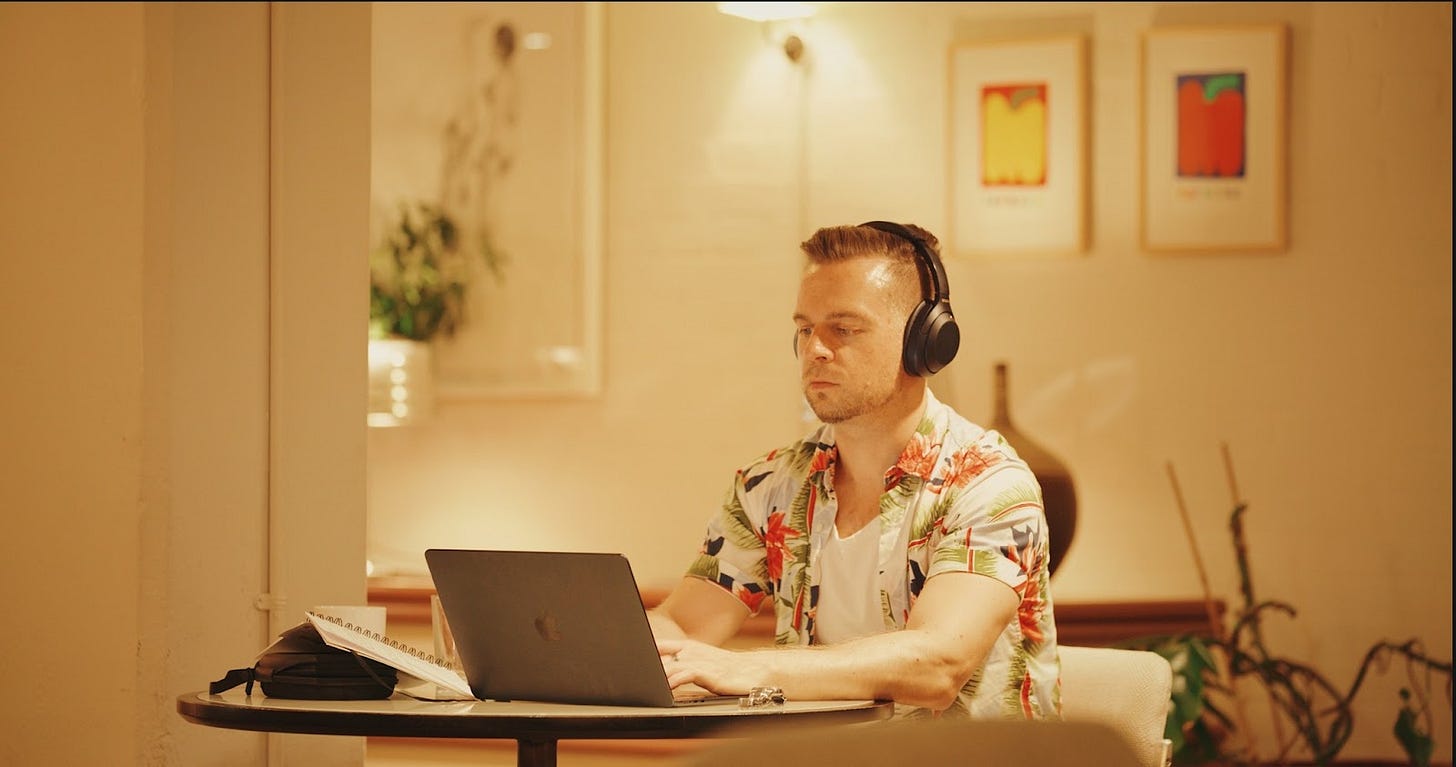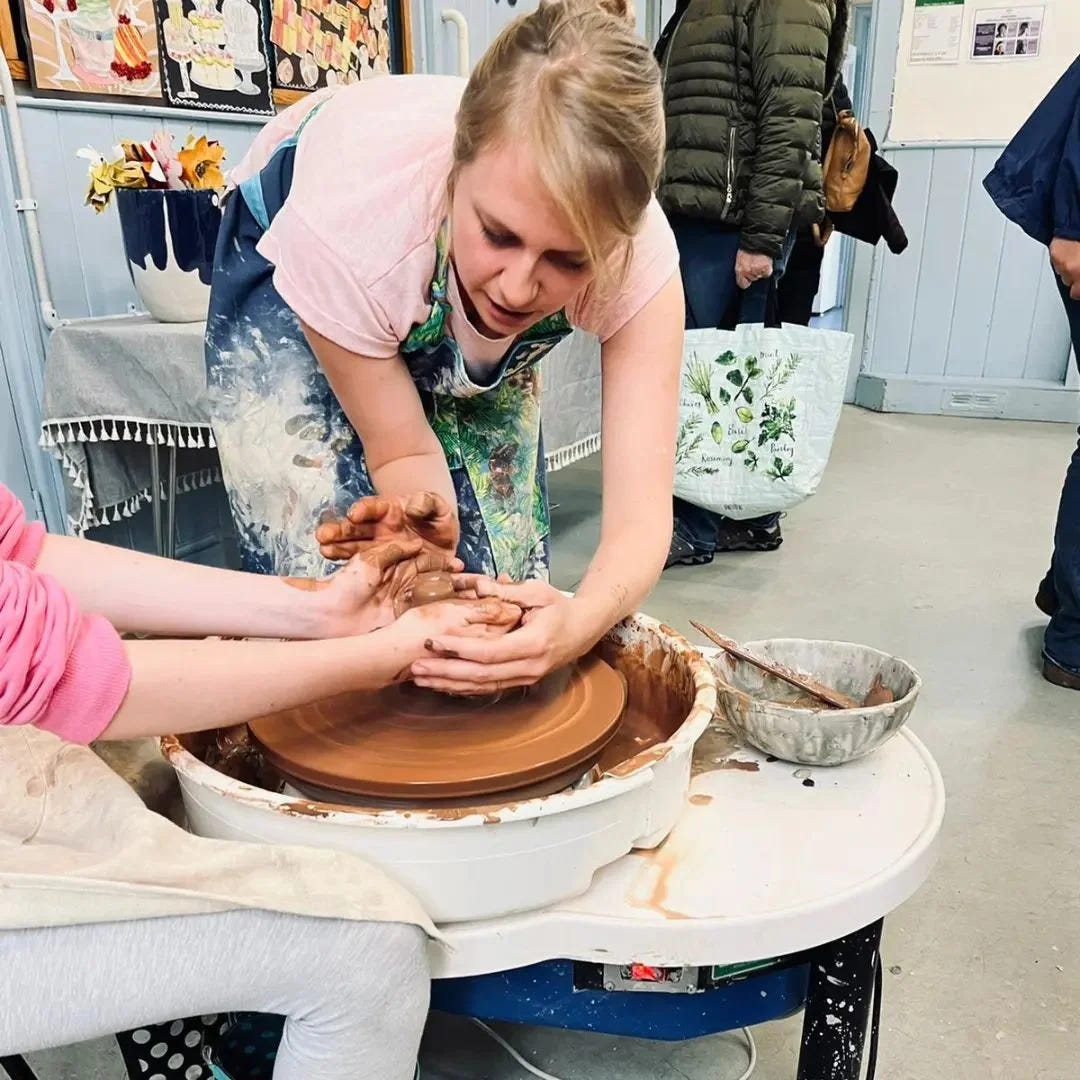How to Master Skills through ‘Deliberate Practice’
8 strategies for boosting your performance and learning
Highlights:
Why deliberate practice is so effective for mastering skills.
The key components of deliberate practice.
How to engage in deliberate practice.
Watch | Listen 👇
One of the most effective ways to master a skill is through ‘deliberate practice’. This is a systematic method of effortful, highly focused, goal-oriented practice which has been shown to significantly improve performance and learning.
Deliberate practice was developed in the 1970s by Anders Ericsson, former Professor of Psychology at Florida State University and a renowned expert on the psychology of expertise and performance.
Some of the key strategies involved in deliberate practice (credit: learntrepreneurs)
Deliberate practice involves eight strategies:
1. Break goals into small steps
Set a clear, overall goal for any work session where you’re building a skill or your knowledge. Break that down into a set of clear, small steps.
Each step should function as part of a set of steps leading to the overall goal. Each step should be an incremental increase beyond the previous one, situated just outside your comfort zone.
Breaking down learning into small steps has been shown to be highly effective for improving learning. You can also apply this principle to task completion, by breaking down a task into smaller sub-tasks.
Break skills and tasks down into smaller steps (credit: pixelshot)
2. Repeat
Regularly rehearse areas in need of improvement. Only move onto the next step when you’ve mastered the current one.
3. Focus on what most needs improvement
Focus on areas where improvement is most needed. Avoid practising what you already know well. Identify areas of improvement during your self-reflection time (see strategy 6).
4. More effort = more learning
Research has shown that learning and skill development are most effective when they require high effort. The more effort you make, the more you’ll learn.
Effortful learning has a greater impact on neuroplasticity than less effortful learning, forming new connections in the brain and increasing our intellectual abilities more. If learning requires little effort, it’s likely to be forgotten quickly and only generates surface-level gains.
In this way, learning and skill development are analogous to physical fitness and strength training: the harder you train, the fitter you’ll get, and the heavier the weights you lift, the stronger you’ll get (as long as you recover effectively and use good techniques).
Deliberate practice often won’t be enjoyable while doing it, since it’s hard and involves regular setbacks (see strategy 7). The enjoyment usually comes later, from the satisfaction of having built your skills thanks to sustained effort.
Always situate the step in your learning process just outside your comfort zone, so you’re constantly having to make high effort to master the step you’re on.
More effort = more learning (Credit:Getty Images)
5. Concentrate
The most effortful learning always requires our optimal focus. So, create an environment that facilitates your highest level of concentration.
Find the conditions that help you reach optimal focus (credit: Matt Maude)
To create a high-focus environment, consider three factors:
a. Time
The time of day you focus best, and how long you maintain optimal focus when you work.
For example, you might focus best first thing in the morning for a period of about three hours, divided into 50-minute periods with 10-minute breaks in between. In a previous blog I described how a friend of mine structures his deliberate music practice into 15-minute periods with two minutes break between each. Test and track what works best for you.
Music practice is most effective when it’s deliberate (performing live at Boomtown Fair, 2018)
b. Environment
Optimize your physical environment for concentration. Work in a room dedicated to work, and never work in your bedroom (it negatively impacts sleep). Remove any object that could be a physical distraction, such as a cookie jar, a to do list of items unrelated to what you’re focusing on, and – most importantly – your phone. Put your phone in a different room: research shows that performance improves when we do this.
c. Digital distractions
I’m going to emphasize the previous point because it’s so important: put your phone in a different room.
Smartphones are the greatest source of distraction ever invented, and none of us are immune to their capacity for distraction. If you still find you get distracted by checking your phone even with it in a different room, get a kSafe: a time-locked, thick plastic box you can lock your phone in for a set amount of time, from several seconds to 10 days, and the only way you get it out is to smash the box open.
On your computer, use the following apps to reduce digital distractions: Freedom, SelfControl for Mac, and Boomerang (available for Gmail and Outlook).
Create an environment that optimizes focus and efficiency, like an exam hall (credit: Getty Images)
6. Self-reflect
Regularly self-assess your performance and reflect on areas where improvement is most needed. Do this after each focused session and ahead of the next one.
If deliberate practice is part of your daily work routine, I recommend spending time after your deliberate practice session assessing your performance and planning tomorrow’s session. Ideally, use time blocking to plan tomorrow’s session, for maximum productivity.
Regularly review your own performance (credit: Getty Images)
7. Persevere
Since you’re trying to do things you cannot yet do, deliberate practice will involve regular failure, which you’ll need to persist through.
This will be difficult, but has important benefits. First, it shows you’re consistently pushing yourself outside your comfort zone (supporting strategy 4), which shows you’re maximizing your capacity for learning and skill development.
Second, the setbacks we experience when trying to meet goals provide us with extremely useful information that enables us to change our learning and practice methods to more effectively meet our goals. This can also build our metacognition and helps cultivate a growth mindset.
As Peter Brown, Henry Roediger and Mark McDaniel put it in their seminal 2014 book on the science of learning, Make It Stick, striving ‘builds expertise’ (p. 201), because it provides ‘essential information needed to adjust strategies to achieve mastery’ (p. 226). Setbacks should be interpreted as signs of effort rather than failure. This helps us build a growth mindset.
8. Get expert feedback
You need regular feedback, ideally from an expert, on where improvement is needed and how to most effectively improve.
This feedback can also improve your skills in deliberate practice and learn how to give yourself effective feedback during self-reflection (strategy 6). Anders Ericsson wrote that to reach expertise, you’ll need ‘a well-informed coach’, to ‘guide you through deliberate practice’ and ‘help you learn how to coach yourself’.
My sister, Liz, giving expert feedback on how to create ceramics (credit: Make Bristol)
For some skills, the feedback is most effective when it’s immediate. For example, in musicianship, sports and other physical activities such as yoga, immediate feedback enables you to make rapid and significant progress and avoid learning bad habits you’ll need to unlearn later. Seek out immediate, expert feedback wherever possible.
Some skills have a significant subjective element to the effectiveness of their methods, and in these cases immediate feedback is less important. Take writing, for example. A writer might spend hours working on a new piece, during which time they pace around the room, print out their work to edit it, read it aloud to themselves and so on. All of these might be highly effective strategies for some writers, to varying degrees. What they’ll most need feedback on is the draft, which they can send to an expert writer, perhaps their writing coach.
They could, of course, get feedback on the writing process too, and this can always be improved, but it’s less clear why or how a writer should change their method of pacing, printing, editing and so on than a yogi should change their yoga pose or a footballer should change the position of their foot when they cross the ball. In the latter cases, the skills can be improved immediately, but given how widely varied effective writing methods are, it’s more difficult to identify when immediate feedback should be offered or what it should be offered on.
Indications of less effective practice
By contrast with the above, less effective, non-deliberate practice often involves:
mindlessly repeating tasks;
a feeling of ease due to lack of effort;
staying within your comfort zone;
a lack of specific goals;
practising what you already know or understand well;
focusing on enjoying the practice rather than improving performance.
These are six hazards you should watch out for when practising a skill or engaged in deep learning.
The Takeaway
Experts and those on the path towards becoming experts employ the eight strategies above. They consistently challenge themselves with increasingly difficult tasks; analyse their performance to identify areas that most need improvement; refine their techniques using feedback from other experts; and practise with high focus and effort.
The best performers — whether in sports, music, science, or business — employ these strategies to continuously refine their skills.
What skills or areas of learning do you use deliberate practice to improve? What strategies have you found most effective for deliberate practice?
I’d love to hear about your experiences in the comments, or any other thoughts you have about deliberate practice, learning or skill development!
drjonbeale.com | @drjonbeale
Recommended resources
Books:
Anders Ericsson & Robert Poole, Peak: How all of us can achieve extraordinary things (Penguin, 2016)
Peter Brown, Henry Roediger & Mark McDaniel, Make It Stick: The Science of Successful Learning (Harvard University Press, 2014)
Peer-reviewed articles:
Duncan Mascarenhas and Nickolas Smith, ‘Developing the performance brain: decision making under pressure’, Performance Psychology, 2011
Media and web articles:
Kristen Duke, Adrian Ward, Ayelet Gneezy and Maarten Bos, ‘Having Your Smartphone Nearby Takes a Toll on Your Thinking’, Harvard Business Review, 20 March 2018
K. Anders Ericsson, Michael Prietula and Edward Cokely, ‘The Making of an Expert’, Harvard Business Review, 2007
William Park, ‘How to master new skills with “deliberate practice”’, BBC Worklife, 2019
Farnam Street, ‘The Ultimate Deliberate Practice Guide’ (accessed 2025)
Blogs:
Jon Beale, ‘How to Increase Your Productivity Using Time Blocking’, How to Flourish #3, 7 Feb 2025
Jon Beale, ‘Metacognition’, CIRL at Eton College blog, 22 June 2021
Jon Beale, ‘Four Learning Strategies to Make Learning Stick’, CIRL at Eton College blog, 23 March 2021
Jon Beale, ‘Don’t Just Learn, Overlearn’, CIRL at Eton College blog, 28 Jan 2020
James Clear, ‘Deliberate Practice: What It Is and How to Use It’, jamesclear.com (accessed 2025)
James Clear, ‘The Beginner’s Guide to Deliberate Practice’, jamesclear.com (accessed 2025)









